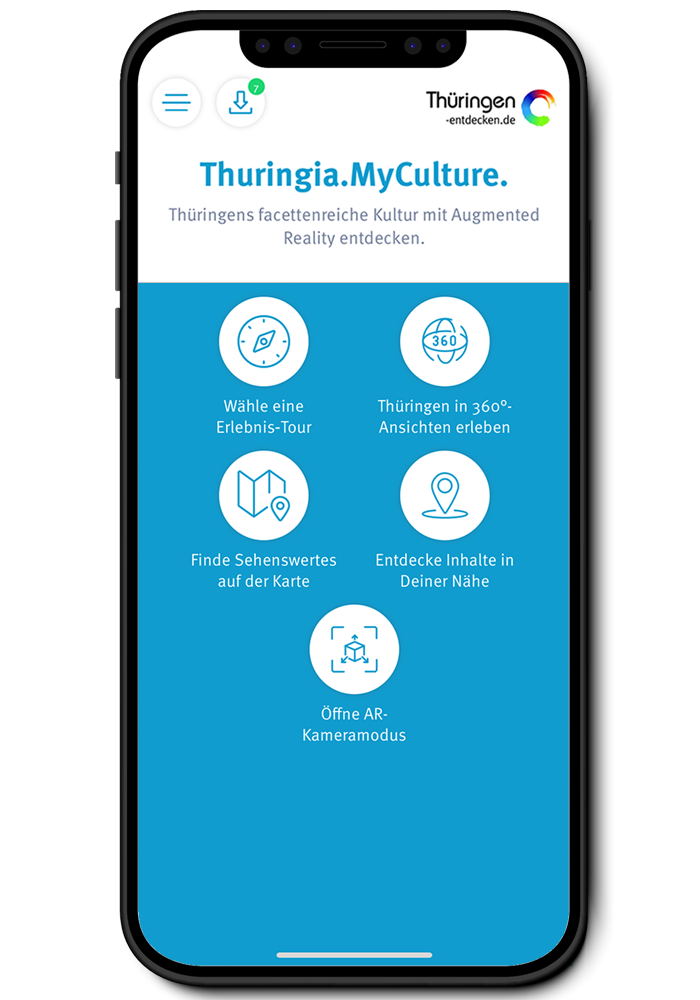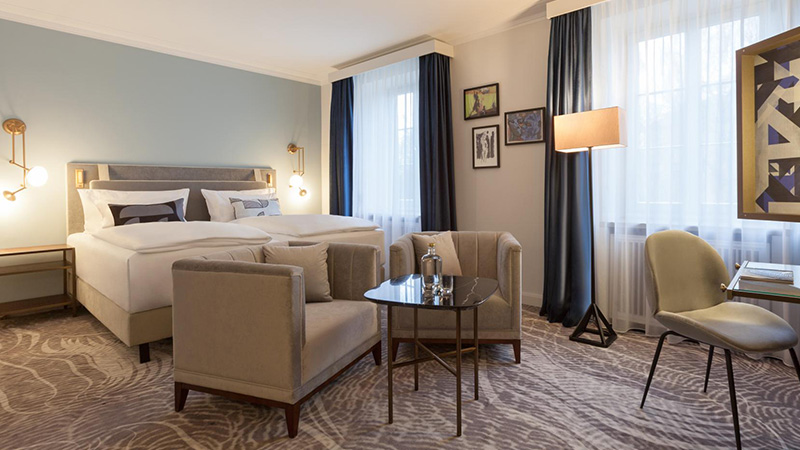Visit the state capital Erfurt and go on a virtual discovery tour through Thuringia.
Jewish Life today: Hopes, thoughts and commemoration
Words for the anniversary year "900 years jewish life in Thuringia"
“The great architectural heritage and long history of the Jewish community in Erfurt are quite extraordinary,” says Rabbi Alexander Nachama, who has been leading the community of the New Synagogue in Max-Cars-Platz since autumn of 2018. Roughly 600 members of the Jewish Community of Thuringia live in Erfurt. Nachama also holds Shabbat services in Jena and Nordhausen. Like the Christian churches, Jewish religious communities suffer from a decline in membership.
“There is a clear lack of young people," says Nachama, who hopes to strengthen the community with family celebrations and other events. Many non-religious Jews in Thuringia, though uninterested in worship, are connected to the community by their interest in Jewish culture.
New Synagogue Erfurt
Prof. Dr. Reinhard Schramm, Chairman of the Jewish Community of Thuringia, talks about his hopes for the anniversary, the wealth of Jewish life in Thuringia, and the dangers of resurging nationalism.
Mr. Schramm, with 1,700 years of Jewish life in Germany, the country will be celebrating an important anniversary in 2021. The first Jewish community was founded in Collogne in 321. What does this anniversary mean to you?
I believe that it is important that Jews and non-Jews in Germany are aware that Jewish life is an integral part of this country. In Thuringia, we are closer to 900 years of Jewish culture, but that, too, is a very long time. Our anniversary celebrations will begin in the fall of 2020. It would be good if we all became more aware of the many centuries of Jewish contributions in religion, science, culture, and the economy. All that has been forgotten. The national socialists did a thorough job.
Why is there such an abundance of Jewish culture in Thuringian history?
Merchants were key figures of Jewish life in the Middle Age, and the Via Regia, the old trading route, ran through Erfurt. Even back then, it was normal for Jews to cross borders and speak several languages. Now the capital of Thuringia, Erfurt was attractive to Jews for its location. From here, Jewish life and culture spread throughout the region. From Berkach in the South of Thuringia to Nordhausen in the North, Jews founded communities. Historians believe that there were once 34 Jewish communities in what is now the federal state of Thuringia. Today, there are three again, with almost 800 members.
What are the best ways to explore Thuringia’s Jewish heritage?
The Old Synagogue and mikveh in Erfurt are certainly fascinating. If you are more interested in contemporary Jewish life, there is also a lot to discover. You could visit the New Synagogue in Erfurt or one of the many upcoming events. With three festivals dedicated to Jewish culture, Thuringia has more to offer than most other federal states. And with 2021 marking several anniversaries, the event schedule will be particularly packed. We are planning an opening gala concert and hope to host it in the Wartburg ceremonial hall. Another important event will be the official presentation of a new Torah scroll, gifted to us by the German Protestant and Catholic Churches, in late 2021. Work on this scroll began two years ago. I am thrilled that we will be experiencing even more Jewish culture and learn more about Jewish history in our region in 2021.
What is your message in view of the current rise of anti-Semitism in Germany and beyond?
There is an enormous surge of nationalism in many countries around the world. Germany is no exception. The shock of the Shoah is waning; nationalism is returning to the heart of society. This development is unfortunate. As Jews, we are very aware that nationalist sentiment spells danger for minorities. Anti-Semitism is a common side effect. We Jews warn of the dangers to humanity. Some interpret this as troublemaking.
What can each of us do to prevent a return to darker times?
I think it is important that we do not talk only about the murdered Jews, even though we will never forget them. We need to show the extraordinary achievements of Jews in and for Germany. I wished that the normality of Jewish life became more visible in Germany. As Jewish Community of a federal state it is our task to create a context in which this can happen. We also cooperate closely with other religious communities and the democratic parties. Together, we must oppose those who wish for a return to the past. To do so, we need to make sure that Jewish life is well anchored in society. This year of anniversaries can be a part of that.
Header picture ©Christopher Schmid, cmr
Did you like this story?
Maybe, you'll like this too ...













